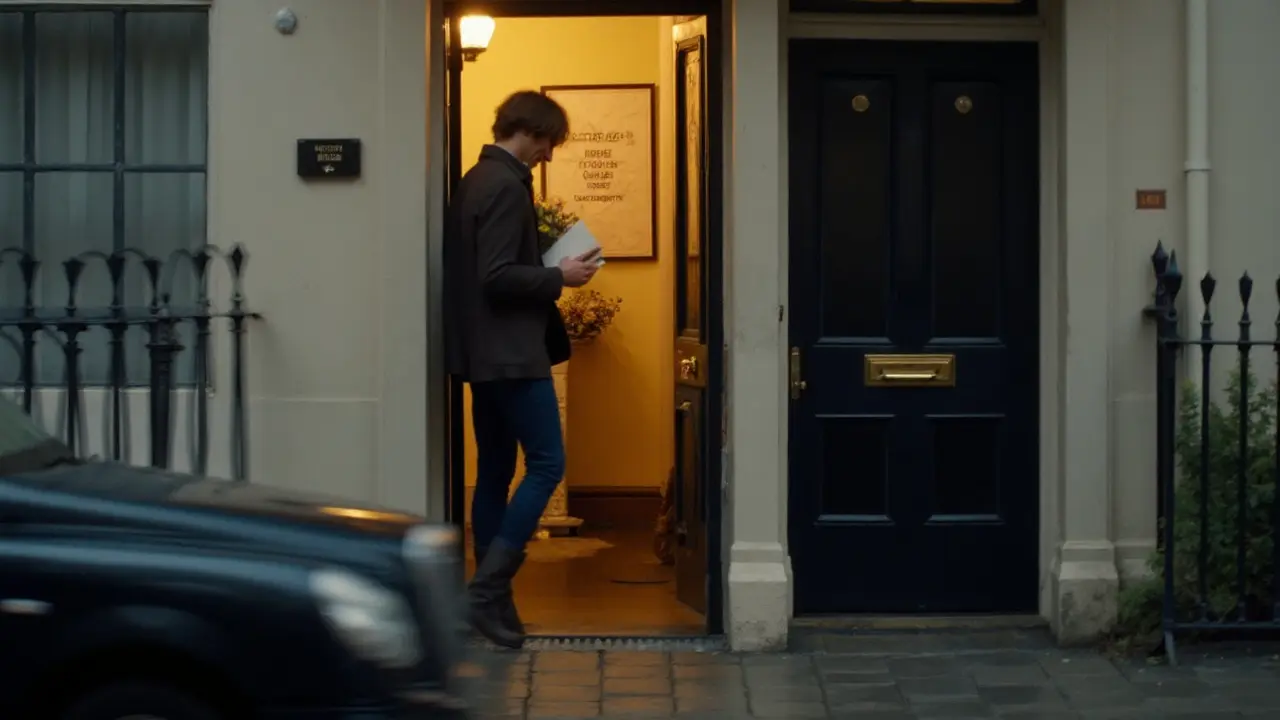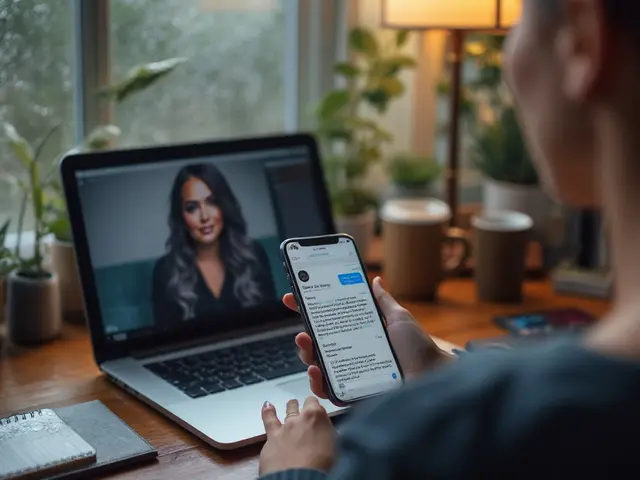Loneliness is spiking and confidence is wobbling. The Office for National Statistics reports millions of UK adults experience frequent loneliness each year, and social anxiety hasn’t exactly eased since the pandemic. If you’re looking for structured companionship and low-pressure practice with conversation, etiquette, and presence, incall escorts can be a discreet, professional way to work on both your social and personal life. They aren’t therapists or a shortcut to intimacy. Think of them as skilled companions who offer time, boundaries, and experience-so you can sharpen your social skills and rebuild confidence in a controlled, respectful setting.
- TL;DR: Incall means you visit the companion’s location-more privacy for you, less logistics.
- Social life boost: practice conversation, etiquette, and presence with real-time feedback.
- Personal life lift: rebuild confidence, manage nerves, and reconnect with self-care.
- UK angle: buying or selling sex is legal in England and Wales, but brothel-keeping and certain forms of solicitation are not; be respectful and informed.
- Do it right: screen, set expectations, agree boundaries, be punctual, and treat it like a professional booking.
What Incall Escorts Offer-and How That Helps Your Social and Personal Life
Incall simply means you go to the provider’s place-usually a private, comfortable, and well-run location. Outcall is the opposite: they travel to you. Incall often suits people who want discretion, controlled logistics, and a neutral setting. If you share a flat in Bristol or you don’t want someone showing up at your door, incall can feel calmer and simpler.
Why does this matter for your social and personal life? Because the environment changes behavior. A tidy, quiet space reduces stress, which helps you focus on conversation, eye contact, and composure-skills that transfer to first dates, client dinners, or family events.
Here are the specific ways incall time can support you:
- Conversational practice without judgment: You can test how you tell stories, steer topics, or sit with silence. If small talk scares you at Clifton dinner parties, this is practical rehearsal.
- Real feedback: Many companions are adept at reading social cues. Ask what you did well. Ask what came off awkward. That quick feedback loop is gold.
- Etiquette refresh: How to make an entrance, offer compliments without being cheesy, dress to setting, and handle the bill-all useful if you’ve been out of the dating or networking game.
- Presence and pacing: Slow down, breathe, and notice timing-when to speak, when to listen. That rhythm makes you more engaging in any room.
- Rebuilding confidence: Repeated, safe experiences shrink anxiety. The NHS emphasizes exposure and skill-building for social anxiety; professional companionship can complement that idea-within boundaries.
- Structured self-care: Booking time for connection, grooming, and good conversation pushes back against isolation. Even one consistent appointment can anchor your week.
Let’s set expectations. Escorts are professionals, not partners. There’s no guarantee of chemistry. You’re paying for time, presence, and a set of agreed services. Respect, consent, and clear boundaries sit at the core of the experience.
UK context matters. In England and Wales, selling or paying for sex is not illegal, but managing or keeping a brothel, controlling prostitution for gain, kerb-crawling, and certain types of solicitation are illegal (Sexual Offences Act 2003; Policing and Crime Act 2009). Many companions work independently. Reputable providers focus on screening, consent, and privacy. If something feels off-rushed, pressured, or unsafe-walk away. Your safety and theirs come first.
Evidence and sanity checks help. The ONS has tracked loneliness and wellbeing trends across the UK. The NHS outlines practical strategies for anxiety that mirror what works socially: exposure, reframing, and feedback. Professional companionship isn’t therapy and shouldn’t replace it, but used thoughtfully, it’s a realistic way to practice the same muscles-rapport, curiosity, and self-possession.
What does “good use” look like in real life?
- Polished conversation: You come in with two or three topics you care about-music venues along the Harbourside, a film at Watershed, a weekend walking route on the Downs-and you practice asking better follow-ups.
- Confidence reset: After a breakup, you take things slow, keep it light, and remember what being seen and heard feels like-no rush, no drama.
- Social prep: You’ve got a wedding speech. You run it once, get notes on pacing and tone, and cut the fluff.
Those small wins stack. Two hours of relaxed, attentive conversation can make you sharper in the real world. You leave calmer, more grounded, and less likely to spiral at your next networking event in the city centre.
| Factor | Incall | Outcall |
|---|---|---|
| Privacy | Your home stays private; you travel | Provider travels; your location disclosed |
| Logistics | Fixed, prepared space; predictable | Varies by venue/hotel; more coordination |
| Typical UK rates (1 hr, 2025) | £120-£300 in many cities; London often higher | £150-£350+; may include travel/time premium |
| Travel costs | You cover your own transit | May include provider’s travel/time fees |
| Best for | Discretion, routine practice, calm environment | Hotel stays, at-home convenience, special events |
| Risks | Finding the location; respecting house rules | Neighbors/staff noticing; your address exposure |

How to Work with an Incall Escort: Steps, Etiquette, Safety, and Cost
If you want real benefit-better social skills, more ease, a steadier mood-treat this like any professional service. Be clear, respectful, and prepared. Here’s a practical flow that has worked well for clients I know in Bristol and beyond.
-
Define your goal beforehand. Pick one social skill per session: small talk, storytelling, active listening, or body language. Write it down. If you try to fix everything, you’ll fix nothing.
-
Research providers. Look for independent companions with detailed profiles: services offered, boundaries, screening requirements, rates, and etiquette notes. Clarity is a green flag. Vague profiles and pressure language are not.
-
Screen and communicate. Follow their screening process-references, light ID check, or work email. Keep messages concise, polite, and specific about time, duration, and any non-sensitive preferences (e.g., dress code, conversational focus, venues to discuss). Never send explicit content or overshare personal data.
-
Agree terms. Confirm rate, deposit (common now), cancellation policy, and expectations. If you want help practicing a toast, say so upfront. No surprises.
-
Plan your arrival. Be on time, clean, and sober. Eat light, hydrate, and bring exact payment in the agreed format. If you’re anxious, arrive in the area 10-15 minutes early and take a short walk to settle your nerves.
-
Start with boundaries. At the door or early on, align on the plan: topics, tempo, and any clear don’ts. Consent is active and ongoing. If either of you wants to change direction, check in first.
-
Practice and get feedback. Use the time. Ask for live cues (“Give me a signal if I monologue”). Try a conversation “drill”: two minutes on a topic, then swap roles. You’ll feel awkward for 30 seconds. Then it clicks.
-
Close well. Thank them, don’t linger beyond time, and follow house rules. If tipping is acceptable and you had a standout session, tip according to your budget. Ask if they’re open to a next session focused on a different skill.
-
Debrief privately. On the way home, jot two wins and one improvement. For the next week, apply one change in your daily life-a better opener at the cafe, eye contact on morning commutes, or a cleaner “wrap up” at work meetings.
Safety and ethics aren’t optional:
- Use only reputable, independent providers. Trust your gut; if screening or communication seems off, drop it.
- Respect boundaries. Consent isn’t a box you tick once; it’s live.
- Keep substances minimal. Alcohol and anxiety don’t mix with good judgment.
- Protect privacy. Don’t share names, addresses, or work details. UK data protection law (UK GDPR, Data Protection Act 2018) exists for a reason; treat personal data like cash.
- Be mindful of exploitation red flags. If someone seems controlled or coerced, step away and consider reporting concerns to trusted resources like National Ugly Mugs. Your safety and theirs come first.
Costs and budgeting, 2025 reality check:
- Rates vary by city, time, and experience. As a rule of thumb, expect £120-£300 for an hour incall outside London, with Bristol often mid-range. London can run higher.
- Deposits are common. Treat them like any appointment retainer.
- Budgeting rule: cap this at 1-2% of monthly take-home if you’re focused on social practice, not lifestyle splurges. You want growth, not money stress.
Etiquette that makes everything smoother:
- Don’t haggle. You don’t bargain at the barber for a fiver off.
- Be clean and presentable. A shower, fresh clothes, and trimmed nails do more for your presence than any line you’ll deliver.
- Keep your phone tucked away. If you must check it, ask: “Mind if I take this?”
- Don’t overshare. You can be open without handing out your biography.
- Mind time. When time’s up, it’s up. Book longer next time.
Checklist: before, during, after
- Before: goal, screening done, payment ready, hygiene, calm arrival.
- During: confirm boundaries, practice actively, ask for one piece of feedback.
- After: thank you, smooth exit, private notes, apply one change this week.
Pitfalls to avoid:
- Projecting fantasies. This is professional time, not a substitute for a relationship.
- Skipping the plan. Vague goals create vague outcomes.
- Overbooking. Growth happens between sessions when you practice in the wild.
- Ignoring your budget. Stress kills confidence; keep it sustainable.
Decision cues: incall or outcall for you?
- Choose incall if: you want discretion, travel is easy, and you value a consistent, private setting.
- Choose outcall if: you’re in a hotel, have mobility issues, or want the provider to save you travel time (and accept the premium).

Scenarios, Examples, Mini‑FAQ, and Next Steps
Three common scenarios I see in Bristol-each with a simple plan.
1) The comeback conversation
- Context: You’ve been working from home for years. Your small-talk muscle is weak.
- Plan: Book 90 minutes. First 30 minutes: practice openers and follow-ups. Next 30: run a casual “mock networking” chat. Final 30: debrief and get one concrete improvement.
- Outcome: You learn to ask better questions (“How did you get into that?”), share a tight story, and exit a chat gracefully (“I’m going to refresh my drink-great meeting you”).
2) The wedding speech tune‑up
- Context: You’ve got a best-man speech near the Suspension Bridge and you’re terrified.
- Plan: Book two sessions. Session 1: deliver the draft, get notes on pacing and tone. Session 2 (a week later): deliver the tightened version, practice pauses and eye contact.
- Outcome: Fewer words, clearer beats, calmer breathing. You hit the laugh line and stick the landing.
3) The confidence rebuild
- Context: Recent breakup. You feel invisible.
- Plan: Book a gentle, conversational hour. Keep it light. The goal isn’t to overshare-it’s to remember you’re good company.
- Outcome: You leave steadier, with one or two compliments you can believe. Next week, you take that steadiness into a casual drink with friends on the Harbourside.
Mini‑FAQ
- Is this legal in the UK? Paying for sex is not illegal in England and Wales. Offences include brothel‑keeping, controlling for gain, certain forms of solicitation, and kerb‑crawling (Sexual Offences Act 2003; Policing and Crime Act 2009). Check local guidance if unsure.
- How do I stay safe? Use independent, well‑reviewed providers, follow their screening, keep communication clear, meet sober, and bail if anything feels off. Share your travel plan with a trusted friend if that calms you-without disclosing the provider’s details.
- What about health? Discuss boundaries and safer‑sex expectations before you meet. If you have any health concerns, speak to an NHS clinic. Don’t make assumptions.
- Will this replace a real relationship? No. It’s structured companionship. Use it to build skills and confidence you then apply in your day‑to‑day life.
- How often should I book? Start monthly, then adjust. The point is to practice in the real world between sessions.
- Do I need to tip? Tips are appreciated when policy allows but never required. Gratitude and punctuality matter more.
Troubleshooting and next steps
- If you felt nervous the whole time: Shorten the first session (60 minutes), arrive earlier, do a five‑minute walk, and ask to start with a light “icebreaker” topic. Breathing: in for four, out for six-repeat five times before you buzz in.
- If conversation stalled: Bring a few prompts next time: a recent film, a local cafe you liked, a weekend plan. Ask open questions (“What surprised you about…?”) and mirror one phrase to show you’re listening.
- If boundaries felt unclear: At booking, write a simple statement: “I’d like to focus on conversation practice and feedback-does that work for you?” Reconfirm on arrival. Clarity is kind.
- If costs creep up: Move to shorter sessions, book at quieter times, or extend intervals. Keep this in the 1-2% of take‑home range if your goal is growth.
- If you worry about privacy: Use a separate email, disable geotags, and don’t share identifiable details. Keep receipts general if that matters to you.
- If you want measurable progress: Track three metrics weekly: number of new conversations started, length of average chat (minutes), and one piece of feedback applied. If the numbers rise, you’re doing it right.
The bottom line: with the right mindset-clear goals, respect, and patience-incall time can be a simple, discreet way to practice the social game for real life. You’ll step into rooms taller, talk cleaner, listen better, and carry yourself like you actually want to be there. In a city like Bristol, that’s half the magic-showing up ready to meet the world where it is.




